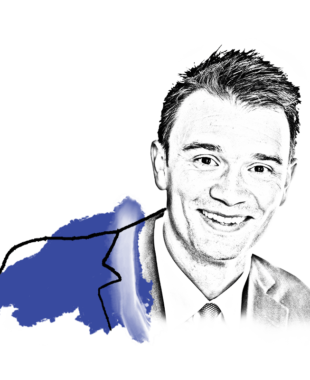In this job we’re fortunate to meet lots of great people – smart people, interesting people, quirky people. So it was that a year or two ago I had a meeting with a former British spy. He had a genuinely differentiated perspective on how the world actually works, as opposed to what we read in the papers. It was one of those conversations that brings a clarity to topics that appear to be deeply complex. At the end of our meeting, I asked him whether his thinking was captured anywhere that I could read more about. His recommendation was that the best book that he had ever read, explaining how the world works, was World Order by former US Secretary of State Henry Kissinger.
If you are interested in the politics of nations, how states work and why some wars are worth fighting and some are not, why the world functions as it does in international relations, then I highly recommend it. Without going into the finer details of the whole book, I would like to focus on its final chapter.
Clients and consultants quite rightly always have an array of questions for their investment managers. It was in the Kissinger book, this most unexpected of places, that I gleaned some investment wisdom and found some concepts that translate well into illustrating my answers to some of the most frequently asked of those questions. These include: What do you look for when you are hiring people? How do you gain an information advantage in this day and age? How does it work for making decisions in the group? Are management meetings worthwhile?
I imagined what Kissinger could have to say on these topics. In his book, he talks about some of the great thinkers of history – Hobbes, Locke, Rousseau – and how each framed their concept of humanity in terms of an inherent, built-in nature and a shared experience of reality that were both timeless and unchanging. However, he thinks that the contemporary world could be shifting that shared nature and shared experience of reality so that they are no longer timeless and no longer unchanging. That is because human consciousness is now shaped through an unprecedented filter where our interactions are pushed more and more into the virtual world.
Why does he think this? For most of us, the chances are that we spend more than half our waking hours in front of a screen. Kissinger is worried about what this is doing to us in the context of nation states. Here is why: policymakers undertake multiple tasks, many of those are shaped by a society’s history and culture. First, we need to analyse where their society is today, then try to understand where the current trajectory will take that society.
Policymakers have to resist the temptation to extrapolate the familiar into the future because, in a time of political and technological upheaval, that is the road to stagnation and decline. It is important to stay on top of where things stand today and have a vision of the future that can help steer your new course. A new course presents advantages and disadvantages that will always seem closely balanced. I am sure that you have put the parallel together in that the new course can be substituted for an investment idea. An investment idea almost always looks closely balanced, so when looking at something new, a new course of action, a new idea, what does one need.
According to Kissinger, it is about character, because the choice is not obvious, and courage, because it can be a lonely road. He also talks about vision and determination. For example, can you see the direction of travel and can you persuade others to follow you to your conclusion? I will return to the building blocks of decision making later, but, first, let’s address the question of what we’re looking for in the individuals that we hire.
When we’re hiring there are lots of attributes that we look for. I often say that we want candidates to be interested and interesting. That said, character, courage, vision, and determination are perhaps more important to articulate. The ability to make tough choices in finely balanced situations, and to have the clarity of vision and determination of purpose to convince others to follow that course. These are all important with regards to how we do what we do.
All that said, why does instant online communication and fact-checking bother Henry Kissinger? Why does spending half of your waking day behind a screen threaten world order? He believes that today it is increasingly difficult to develop character, courage, vision, and determination.
From all the great and indispensable achievements the internet has brought to our era, its emphasis is on the actual more than the contingent, on the factual rather than the conceptual, on values shaped by consensus rather than by introspection.
If answers are available at the touch of a button, do we continue to build knowledge based on concepts, as we have done since the day the printing press went into action? Or do we just react to facts? Can we still make the difficult choices? Walking the lonely path becomes much harder when you are looking for confirmation from your online Facebook friends.
To pause on that reference to “the contingent”. I think that is a critical function of the investment manager, to think about the “what ifs”. What if this risk rears its head? What other risks do I need to think about? That, to me, is the same process as working out what the contingencies are in a foreign policy context.
What about Kissinger’s point about building knowledge and making difficult choices? In his own words: “Philosophers and poets have long separated the mind’s purview into three components: information, knowledge, and wisdom.”
That quote from Kissinger brings us to T.S. Eliot:
Where is the Life we have lost in living?
T.S. Eliot – Chorus from the Rock
Where is the wisdom we have lost in knowledge?
Where is the knowledge we have lost in information?
To my mind, these three factors – information, knowledge, and wisdom – are all needed to make good decisions in those finely balanced situations. One without the others is useless.
They build one on the other but all three are needed. One should not dominate. Facts are not an answer in and of themselves. We must analyse and interpret them, and put them in context to understand their significance. Kissinger thinks that we are forgetting that, for every question, there is not necessarily a reachable answer. That is where thinking has to come in. Foreign policy does not have an answer that can be looked up. Neither does stock picking.
One could argue that the brain is not as good as a computer. It can’t organise huge reams of information. It cannot recall everything it has seen or read. So, should the computer make the decisions? Should information dominate? It has the information. In theory, therefore, it should have the knowledge. However, the brain has evolved in a way that the computer has not, as yet. It has evolved in a way that allows it to deal with the fact that it can’t organise huge reams of information and doesn’t have perfect recall. How has it done that? Books. When the brain learns from books, it adopts concepts, adjusts its frameworks of understanding to help with that problem of interpreting facts. It has an inherent system for developing wisdom.
When faced with the question of how we gain an information advantage, my response is that we try. We spend a great deal of time in research. We vary our sources as widely as we reasonably can but, in the Google age, I’m not sure it is possible to consistently gain an information advantage.
Here comes the controversial part. Kissinger thinks that data and facts shrink perspective, and I agree. Accessible information communicated instantly makes it tempting to forget to ask the significance of that information. We have become reactive, can forget about historical context, and do not think strategically.
If we assume we all have the information, how do we avoid becoming reactive? In my view, we start by taking a long-term time horizon, and that premise dictates that portfolio turnover should be low. We take time to absorb and contextualise news. We stop and think. We build knowledge. We build our knowledge over time. We read. We meet people. We take our time getting to know companies and industries, and we educate one another as we go. That is how we continue to build knowledge. What about wisdom? Where does that come from? I don’t think there is a single member of our team that could claim to be wise but, by applying 19 bright minds who are all knowledgeable in different spheres, and who are actively encouraged to adopt broad perspectives, we think that brings us closer to wisdom. Together, we consider the contingencies.
As for the final part of what Kissinger’s earlier statement, how do we make difficult decisions and train ourselves to do it? How do we avoid reacting in line with broad consensus? Take politics as the obvious example. It has become about mass appeal and the internet has helped to drive that. However, sometimes the right choices are the hard choices, not those dictated by a consensus or a majority chanting loudly across social networks. Leaders need to lead without taking an opinion poll each time.
Our Research team is a unit. While it takes in outside information, it takes time to analyse it, contextualise it, and position it within our framework. That does not mean that research meetings are an opinion poll on investment decisions. They are there to bring deep scrutiny to the suggestions of others, to make sure that decisions are robustly challenged. The view of “the market” is not one to which we adhere.
To return to the words of Kissinger one last time:
The concept of truth is being relativized and individualized – losing its universal character.
The news you read and the news I read are not the same anymore. Much of what we view on our screens has been tailored to our wants and needs. Almost every website now tries to provide you with a bespoke experience based on your browsing history. The result is that truth becomes relativised and individualised. How do we counter that? How else does the brain learn? It learns from other people and from conversation. From these, we get the intangibles of conviction and personality. That is one of the reasons we meet management teams around the world, to gather and analyse information and to challenge what we hear. The brain has evolved to gather and retain information in that way.
Through addressing some of Kissinger’s most pertinent points, we hope to have illustrated how we approach some of those crucial questions and why we continue to believe that, in an era of such immediacy, we believe that our long-term team-based approach works.
Important Information
This article is provided for general information only and should not be construed as investment advice or a recommendation. This information does not represent and must not be construed as an offer or a solicitation of an offer to buy or sell securities, commodities and/or any other financial instruments or products. This document may not be used for the purpose of an offer or solicitation in any jurisdiction or in any circumstances in which such an offer or solicitation is unlawful or not authorised.
This article is from our Q4 2018 client webinar.


